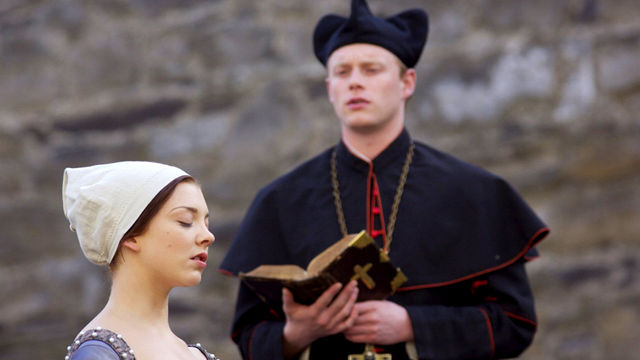For those who know me, you’ll know that Anne Boleyn is one of my favorite historical figures. She is, in fact, one of the reasons I became so invested and interested in history to begin with. Her story resonates with me, despite the centuries of separation between us. In many ways, Anne was an anachronism—a woman ahead of her time, confident in her own ideas, and unwilling to be bullied by opposition. Various historians have argued that it is that powerful, modern personality which ultimately got her killed.
Regardless of the cause—which is still debated to this day—and after having her death delayed twice, Anne Boleyn was executed on May 19th under false charges of treason and adultery. In her final speech to those observing, she pleaded to future historians, asking that “if any person will meddle of my cause, I require them to judge the best.” It is clear today that she was innocent, conspired against by a faction led by Thomas Cromwell, and condemned largely for her failure to produce a male heir.
As a historian myself, I find her life and death compelling. As a writer, I couldn’t help but want to capture it on paper somehow.
The following are two poems I wrote a couple years ago. I thought they would be appropriate to post today. The first, “The Half-Life of Henry VIII and Anne Boleyn” is in iambic tetrameter couplets. The second, “Prophecy for a Burned Queen,” is a villanelle.
The Half-Life of Henry VIII and Anne Boleyn
Disassembled into basic parts,
they’ll call you bluff and me a tart,
a graceless whore, or concubine,
forgetting that in six years’ time
I held you fast with just my eyes
and never allowed you between my thighs.
They won’t remember anything
except my marriage to a king
and how I mounted the scaffold bold
(with knowledge I would soon be cold)
and how my eyes were said to blink
as if I were still trying to think
about the blow which took my head,
forever removing me from your bed.
Prophecy for a Burned Queen
The month is May, and you are queen,
surrounded by smiles and hungry men
awaiting the season’s bloody scene.
Your husband’s hunting brows, obscene
suspicions worming through him again
in the month of May. And you are queen
presiding over this earthly thing—
You’ll say it wasn’t all for him:
the bloody waiting, the season’s scene
of piety in church. But mean
historians will twist and bend
the truth of May, when you were queen,
until you look their standard. Wean
yourself off life; Death will threaten
no waiting. The season’s bloody scene
will come to a head soon, as foreseen;
the king will burn you for his sin.
The month is May, and you are queen,
awaiting this season’s bloody scene.


So, are you watching the PBS series Wolf Hall? We watched the first episode and really enjoyed it. There was a great interview on NPR’s Fresh Air with the author. I’ve read mixed reviews of the books, so I’m not sure if I’ll be tackling those. :-)
I’ve been tempted to, because I love the Tudor era. Hilary Mantel plays fast and loose with history, however, and I know a lot about that period so it can be somewhat frustrating. Still, if her portrayal of Anne was fair, I’d watch. But it’s not. I hear she’s made into the typical power-hungry villainess in order to make Cromwell look like less of a bad guy for bringing her down. I’ll probably skip it.
Hi!
I really enjoyed these poems and found the second one particularly poignant.
I have written a very short poem about Anne Boleyn:
ANNA REGINA
Give me the darkness and the death,
Give me your roses crowned,
And I will show you a true queen buried –
A falcon beneath the ground.
Thank you,
Sarah White